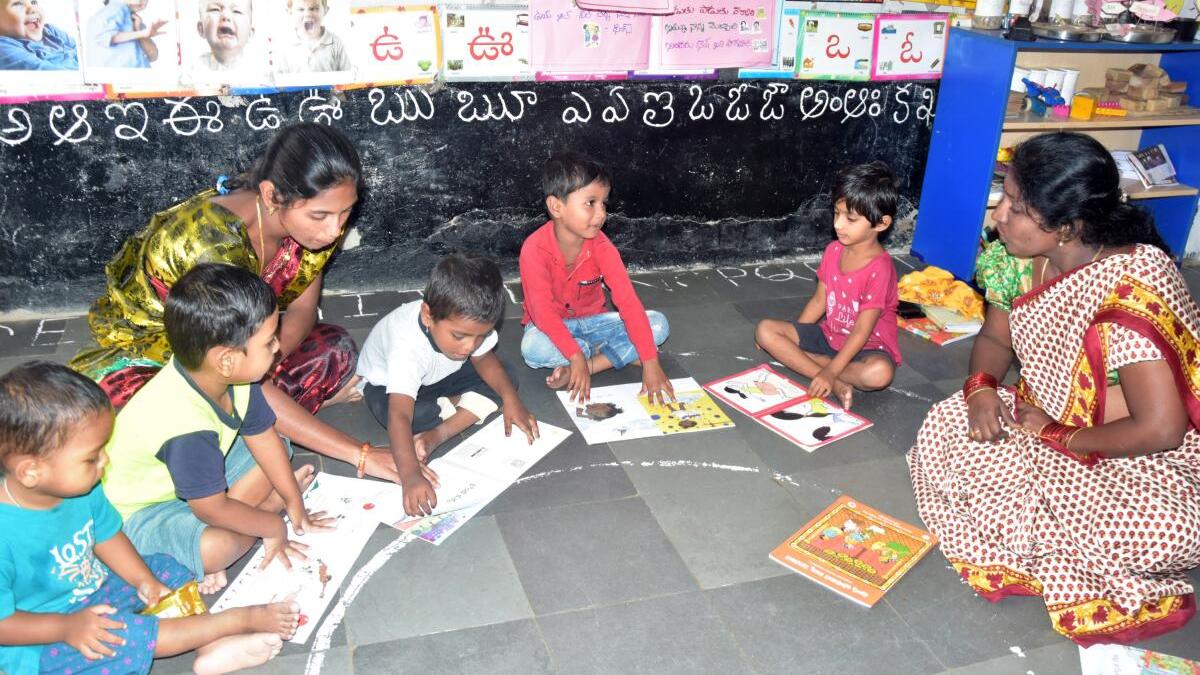If we are to build a Viksit Bharat, we must start where life begins — by nurturing the potential of our youngest citizens. It is in the joyful laughter of a child at an Anganwadi centre, in the rhymes they sing and the blocks they build, that the promise of our nation’s future takes shape. Under the leadership of Prime Minister Narendra Modi, India has placed its youngest citizens at the heart of its development journey. Mr. Modi has redefined our national priorities — not only by investing in universities and digital infrastructure, but by recognising the critical importance of the first classroom a child steps into: the Anganwadi.
In today’s India, play is no longer just a pastime; it is policy. And the results speak for themselves. Over the past decade, the Modi government has fundamentally reimagined its approach to early childhood development. The National Education Policy (NEP) 2020 recognises that 85% of brain development occurs before the age of six. If we seek a smarter, healthier, and more productive population, we must invest where in the first six years of life.
Scientific evidence supports this shift. A study by the Department of Clinical Epidemiology at CMC Vellore found that children who received 18 to 24 months of structured early childhood care and education (ECCE) showed significant and lasting IQ gains — up to 19 points by age five, and 5 to 9 points by age nine.
These findings are aligned with global research. As Nobel Laureate Dr. James Heckman famously said, “The earlier, the better — and the smarter the return.” His research estimates that investments in early childhood yield returns of 13-18%.
A child’s first school
Recognising both the economic and social importance of ECCE, the Ministry of Women and Child Development launched Poshan Bhi Padhai Bhi — an initiative that transforms Anganwadi Centres into vibrant early learning hubs. For the first time, Anganwadi workers are being systematically trained in ECCE, focusing on activity-based and play-oriented approaches using local and indigenous materials. Budget allocations for teaching-learning materials have also been significantly enhanced, and monthly ECCE days have been institutionalised. Today, the Anganwadi Centre is not just a place for nutrition — it is every child’s first school, nurturing curiosity, creativity, and holistic development in the most critical years of life.
Holistic development
To guide this transformation, the Ministry has introduced Aadharshila, the National Curriculum for Early Childhood Care and Education for children aged 3-6 years. Aadharshila focuses on the holistic development of children — emphasising not only intellectual growth but also emotional, physical, and social well-being. It approaches learning through structured play, allowing children to grow and thrive in a nurturing environment.
Children are instinctively drawn to play — turning every corner of their world into a space for discovery and joy. With the right environment, this instinct becomes the foundation for lifelong learning. Poshan Bhi Padhai Bhi nurtures this spirit by providing safe, structured, and stimulating settings where children can thrive through guided play and learning. ECCE plays a foundational role in shaping the future of our nation.
Under the Poshan Bhi Padhai Bhi initiative, Anganwadi Centres across the nation are being transformed into nurturing spaces for holistic early learning. A structured Aadharshila’s 5+1 weekly plan ensures that the day begins with 30 minutes of free play, followed by structured activities that enhance language, creativity, motor skills, and social interaction. After a nutritious lunch and rest time, the day concludes with outdoor play and conversation that reinforce values and build emotional connections.
This balanced approach to structured and unstructured play is critical, especially in the light of NEP 2020 which has raised the formal school entry age to six years. Structured ECCE ensures that children are ready for school — emotionally, socially, and cognitively. What is truly heartening is the growing trust of parents across the country. Families who once viewed Anganwadis as just nutrition centres now see them as the first stepping stones in their child’s educational journey.
Every child deserves a strong start, right from birth. Recognising the foundational importance of the birth-to-three age group, the Ministry has also introduced Navchetna, the National Framework for Early Childhood Stimulation. This initiative empowers parents and caregivers with simple, play-based, age-appropriate activities to nurture young minds at home.
Parental involvement is key to a child’s development. While families in higher-income households may invest in toys and books, it is the role of the state to act as an equaliser for those with fewer means. Through Navchetna and Poshan Bhi Padhai Bhi, we are bridging this gap, ensuring that every child, in every corner of the country, receives the stimulation, care, and nurturing they need to thrive from the very beginning.
If India is to truly become Viksit, our youngest generation must be empowered with the right start in life. Play is not a luxury; it is foundational to learning. The Ministry of Women and Child Development remains committed to ensuring that every child gets the opportunity to learn, grow, and flourish, because building the nation begins with nurturing its youngest citizens.
Annpurna Devi, Union Minister for Women and Child Development, Government of India
Published – August 27, 2025 02:44 am IST
